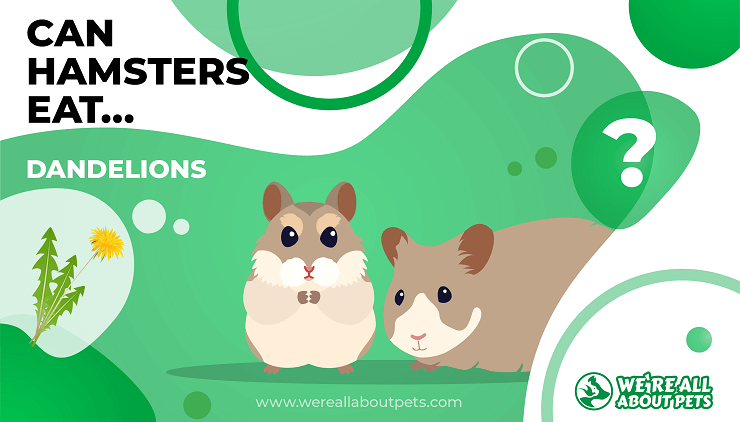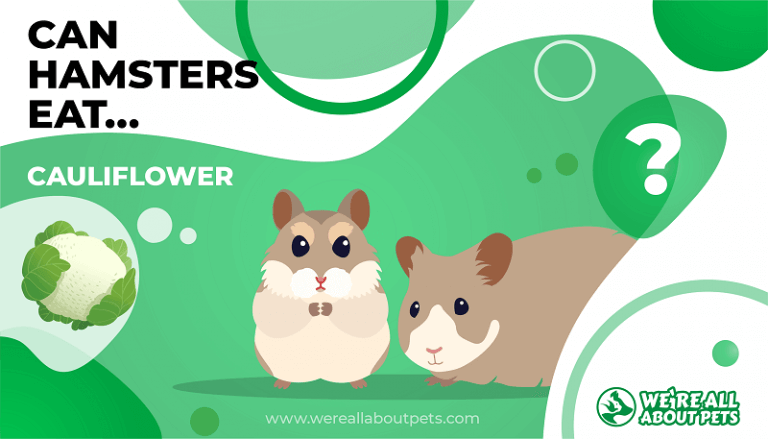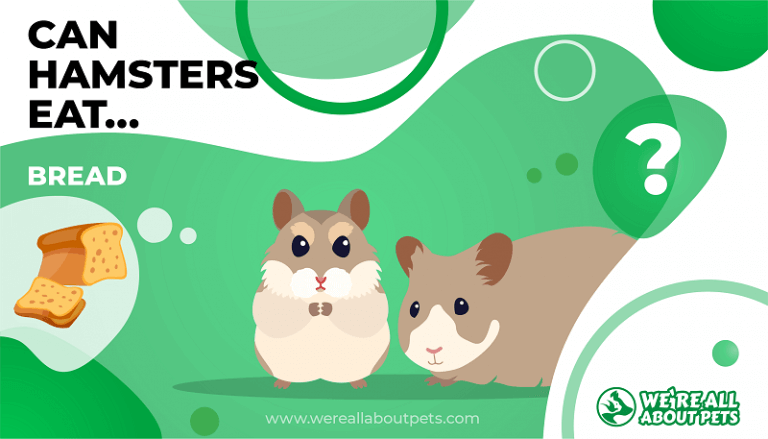Do Hamsters Hibernate?
This page contains affiliate links. We may earn money or products from the companies mentioned in this post through our independently chosen links, which earn us a commission. Learn More
Hibernation is a dormant state that some animals and plants use in the wintertime when food and warmth are harder to find to save energy. Wild hamsters are not true hibernators, but will go into a deep sleep throughout the winter months perfectly naturally.
However, a hibernating pet can be worrying for hamster owners, especially if you are unsure if they should be awake!
Will My Hamster Hibernate?
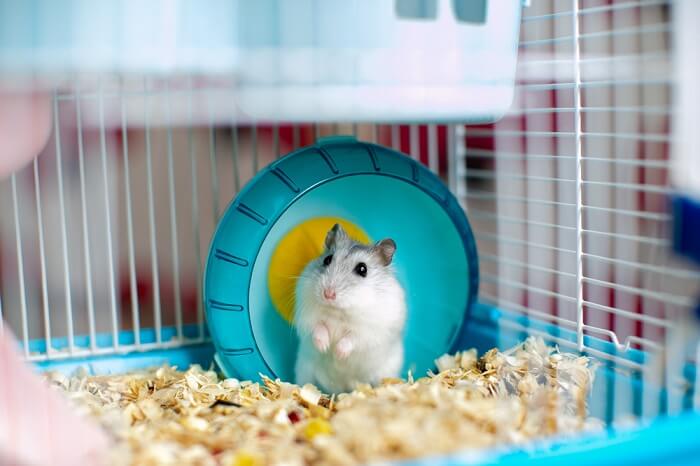
Pet hamsters living in cosy homes with our modern heating and lighting may never enter a state of hibernation. If your home is prone to being on the chillier side, the cold temperatures of the winter months may lead to the correct environmental conditions for hibernation. This may happen if your hamster’s cage reaches below 40 degrees Fahrenheit (4 degrees Celsius).
Are All Hamsters The Same?
There are many different types of hamster, and the breed may affect whether they hibernate, and the type of hibernation. The European hamster is known as a true hibernator: they will spend the cold winter months in a fully hibernating state.
Syrian hamsters, on the other hand, do not usually hibernate, but can enter permissive hibernation if the environmental conditions force them to. Dwarf hamsters usually do not hibernate at all. Find out more about all the different types of this small animal here.
Will I Know If My Hamster Is Going To Hibernate?
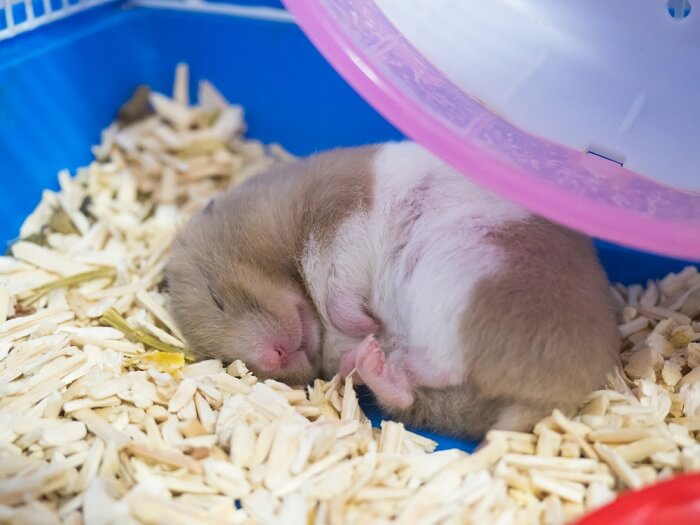
Hamsters hibernate if their body temperature drops too low, sending them into a state of torpor. If you are concerned about cold temperatures in the winter months and want to avoid hibernation mode, watch for these early signs.
- Becoming lethargic, sleeping for longer periods or very deep sleep
- Shivering
- Cold body temperature – their feet, ears and nose may seem cold to touch
- Eating and drinking less
If you notice these signs, your hamster’s environment may becoming cold enough to induce a state of hibernation.
Can I Stop My Hamster From Hibernating?
An easy way to prevent this is to raise the temperature by a few degrees Fahrenheit to stop the hibernation. A hot water bottle or heating pad can be used to raise the temperature of your hamster’s cage – although be careful not to put it too close that your hamster could touch it and burn themselves.
Make sure the hamster cage is away from any drafts, and provide extra bedding on cold days. Read more about bedding here.
Is My Hamster Hibernating… Or Something Worse?
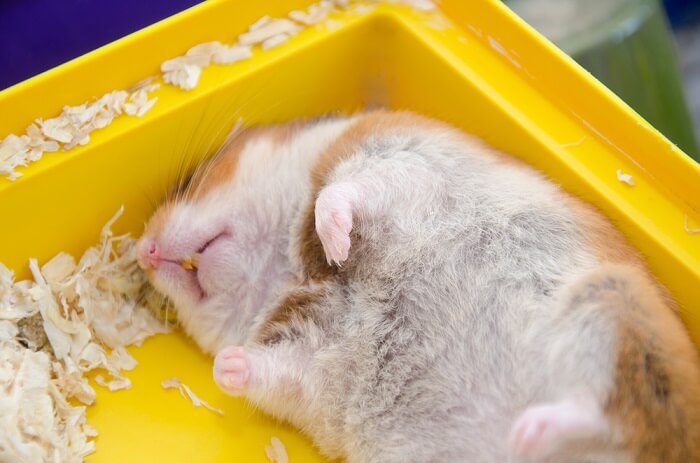
Finding your pet hamster in a state of torpor can be extremely unsettling and concerning. Your hamster may seem cold and unresponsive, similar to a dead hamster. Before you become too alarmed, there are ways to check for signs of life that your pet is in a state of hibernation rather than something worse.
- Are they breathing? Watch your hamster’s chest carefully. During hibernation their breathing rate will slow to only a breath every minute or two, but you should be able to see these slow breaths if you watch carefully
- Try to feel a heart rate. Place your thumb and forefinger either side of the chest of your furry friend gently, just behind their elbows. You should be able to feel the faint flutter of a heartbeat. Their heart rate may be slower than normal, but present.
- Feel their body temperature? This can be tricky, as hamsters do loose body heat and feel cold when they hibernate. However, a dead hamster will be cold and stiff as rigor mortis will be present. In a state of hibernation they will feel colder than normal but there will still be some body heat.
If you are concerned about your pet hamster, especially if they seem to have entered a deep sleep and you are unsure why, consult a veterinarian.
How Long Do Hamsters Hibernate For?
Hamsters will hibernate as long as they need to while the temperatures remain cold. This can be for just a few days, but can be up to many weeks.
What Should I Do If My Hamster Is Hibernating?
If you think your pet hamster may be hibernating, don’t panic. It is a natural state and they can be woken. Aim to slowly increase the temperature around their cage, to naturally bring them out of hibernation mode.
Giving tiny amounts of warm milk using a dropper is usually effective at rousing them. There is a useful guide to rousing a hamster from hibernation here.
They may well wake from hibernation to feed, so provide plenty of fresh water, enough food and clean bedding. Read more about hamster food here.
Frequently Asked Questions
What time of year do hamsters hibernate?
Wild hamsters naturally hibernate in the winter months, as the temperature drops. Pet hamsters may not hibernate at all.
What does hamster hibernation look like?
When a hamster hibernates, they go into a deep sleep, or state of torpor that they cannot be roused from. They will seem still, cold, unresponsive and won’t eat or drink.
How long does hamster hibernation last?
They hibernate until their environmental conditions improve, usually meaning there is warmth and enough food again.

